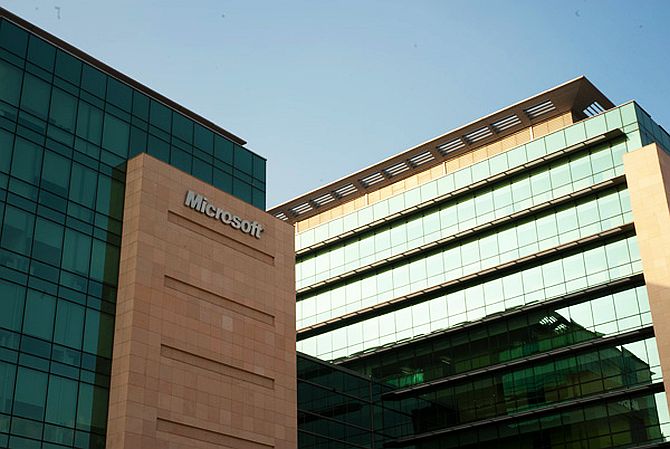Photographs: Courtesy, Microsoft
Microsoft has found a security flaw in its popular web browser -- Internet Explorer – which could allow hackers to gain control of a computer, and there have already been targeted attacks to exploit the bug.
The risk from the flaw could allow hackers to gain control of a victim's computer and Microsoft admitted there had already been ‘limited, targeted attacks’ to exploit it.
Microsoft said the bug affects Internet Explorer versions 6 to 11 and that the firm is investigating the flaw and will take ‘appropriate’ steps, the BBC News reported.
. . .
Internet Explorer users at risk from major bug: Microsoft
Image: Satya Nadella.Photographs: Courtesy, Microsoft
The US software giant, which issued a security advisory over the weekend, said the steps ‘may include providing a solution through our monthly security update release process, or an out-of-cycle security update, depending on customer needs’.
The issue may be of special concern to people still using the Windows XP operating system because Microsoft ended its official support for that system earlier this month.
"The vulnerability crashes Internet Explorer on Windows XP," said Cyber security firm Symantec that carried out tests to confirmed the risk.
. . .
Internet Explorer users at risk from major bug: Microsoft
Image: Microsoft Hyderabad campus.Photographs: Courtesy, Microsoft
According to Microsoft, hackers looking to exploit the flaw could host a ‘specially crafted website’ containing content that can help them do so, the report said.
They could trap users into . . .
Internet Explorer users at risk from major bug: Microsoft
Image: A Microsoft Office logo is shown on display at a Microsoft retail store in San Diego.Photographs: Mike Blake/Reuters
"An attacker could then install programmes; view, change, or delete data; or create new accounts with full user rights," the firm said.
The IE versions account for more than 50 per cent of global browser market, according to NetMarket Share.
Earlier this month, the Heartbleed bug, had set alarm bells ringing across the globe, including in India, for fear of exposing millions of passwords, credit card numbers and other sensitive information to hackers.
. . .





article